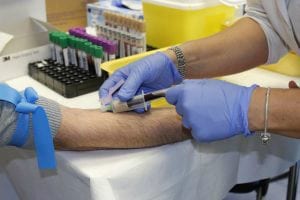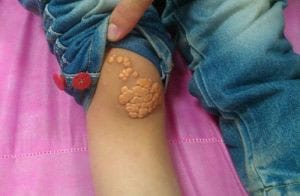Homozygous Familial Hypercholesterolemia (HoFH)
What is homozygous familial hypercholesterolemia?
Homozygous familial hypercholesterolemia (HoFH) is the rarer and more severe form of familial hypercholesterolemia, which is a rare form of high cholesterol. It has been estimated to affect approximately one of every 300,000 people throughout the world.
It’s essential to seek treatment for this form of FH, as it has the potential to lead to heart disease. Without treatment, the low-density lipoprotein cholesterol level can rise to four times the normal level, sitting anywhere from 400-1000 mg/dL.
What are the symptoms of homozygous familial hypercholesterolemia?
Very high cholesterol is the main symptom of this condition. Additional symptoms include:
- Xanthomas (yellow, waxy patches on the skin)
- Xanthelasmas (yellowish fat deposits)
- White/gray circles on the cornea
- Chest pain
- Shortness of breath
- Rapid heartbeat
Heart disease is a possible complication of HoFH, making it essential to seek treatment.
What causes homozygous familial hypercholesterolemia?
HoFH is an inherited condition, meaning that it is passed down from parent to child. In the case of homozygous familial hypercholesterolemia, both parents must pass down a mutated gene in order for the child to be affected. More than one gene can result in this condition, but they all code for LDL receptors that are responsible for removing cholesterol from the blood. When they are unable to function correctly, affected individuals experience high cholesterol. Possible genes that can be altered include the APOB gene and PCSK9 gene.
How is homozygous familial hypercholesterolemia diagnosed?
Doctors will begin by looking for the characteristic symptoms of the disease, reviewing medical and family history, and conducting cholesterol testing. They will confirm a diagnosis with genetic testing.
What are the treatments for homozygous familial hypercholesterolemia?
The first treatment option for HoFH is LDL-apheresis, a process in which one’s blood is drawn, passed through a machine to remove the LDL cholesterol, and then replaced. All other treatments are conducted in addition to this treatment; doctors may also prescribe statins or ezetimibe.
Additionally, a new treatment for HoFH has recently been approved by the FDA: evolocumab. This is a form of PCSK9 inhibitors, which are given via injection. For those who cannot lower their cholesterol through LDL-apheresis and have tried evolocumab, lomitapide is another treatment option.
Where can I find out more about homozygous familial hypercholesterolemia?
HoFH Articles

Rare Community Profiles: Revving for Hope: Raising HoFH Awareness in One Ride

Adding Evinacumab to Care Plan Can Significantly Increase HoFH Life Expectancy





Positive Results From Clinical Trial for Children with Homozygous Familial Hypercholesterolemia




